Enabling aid to reach those who are often overlooked: A Japanese woman creates a workplace for Laotian people with disabilities to help them on their way to self-reliance.
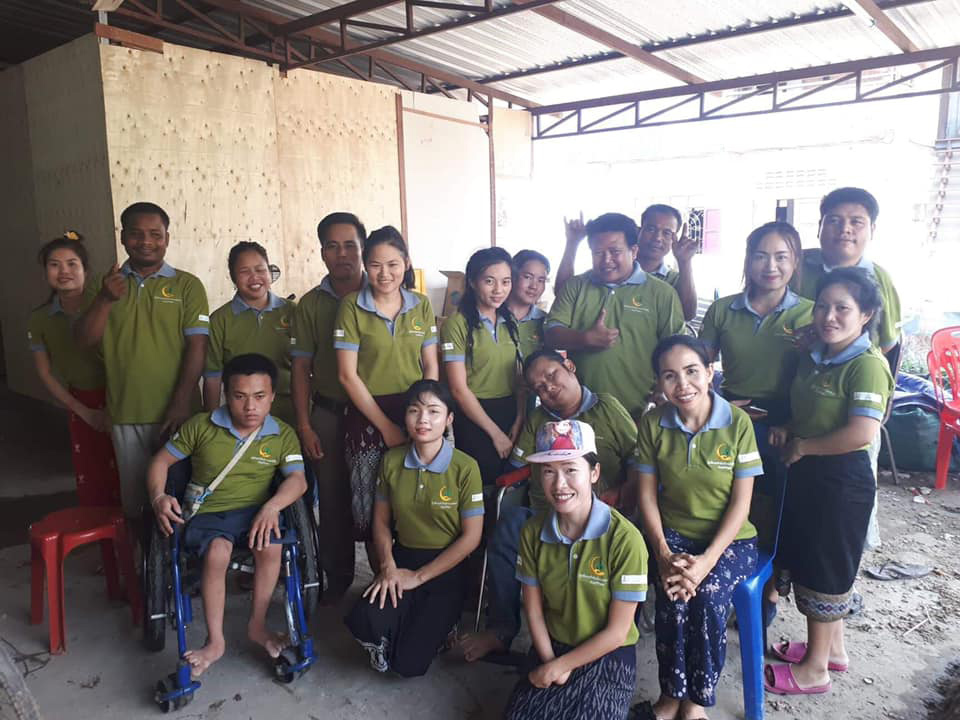
Members of XonPhao. Some had suffered leg amputations as a result of polio at a young age; others struggle with paralysis in their fingers. Whatever their disabilities are, they do what they can and share the work in a spirit of helpfulness.
It began with a simple question in her mind: why weren’t there any children with disabilities in Laotian schools? ISHIHARA Yurina had been an active volunteer from her student years, participating in programs to help people in developing countries. After graduation, she helped to build schools in Nepal and Laos. She noticed, however, that it was rare to see people with disabilities in Laotian society. There were children with disabilities, but they were tucked away in their homes. “No matter how many facilities we built, with the country’s welfare system still in progress, some children remained out of reach. It was disheartening,” sighs Ishihara.
Turning her eyes to the existence of people with disabilities, Ishihara began to think not just about disabled children, but disabled adults, too. There were people who had grown up without ever having gone to school, and it troubled her particularly that women with disabilities were especially likely to remain hidden away in their homes. There were other groups providing support for children, so Ishihara decided to extend support to disabled adults, as they were less likely to receive aid. Helping them to find work and learn to speak out would also lead to the creation of a better future for disabled children, she reasoned.
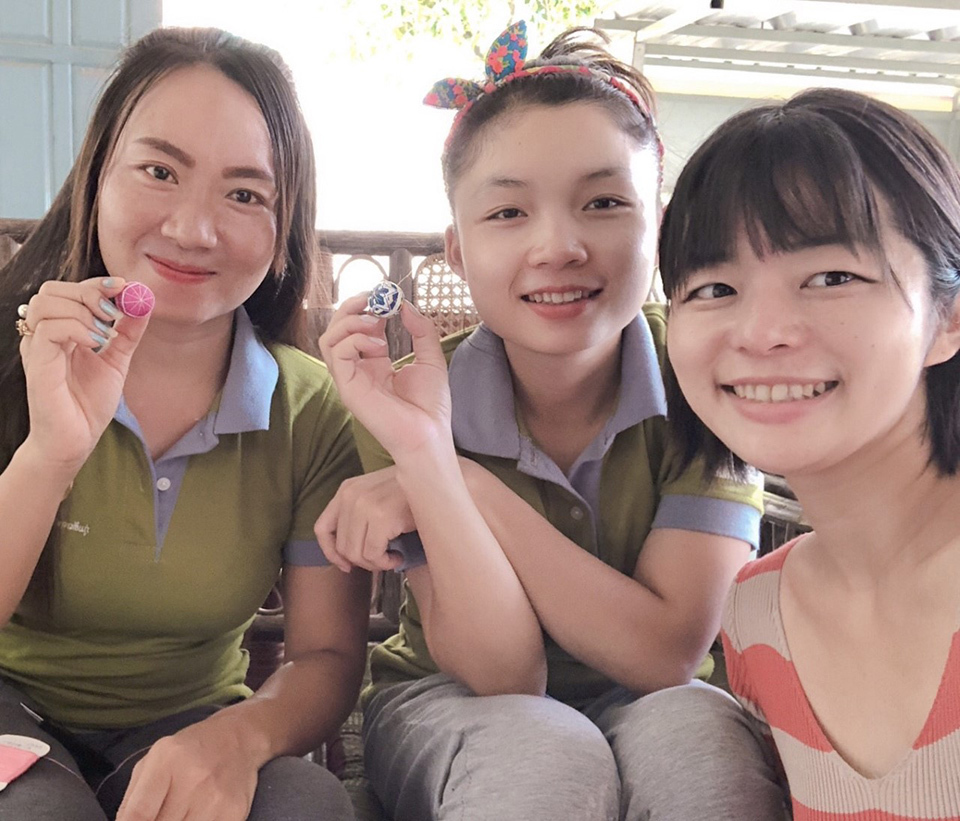
ISHIHARA Yurina (right) and two women of the workshop.
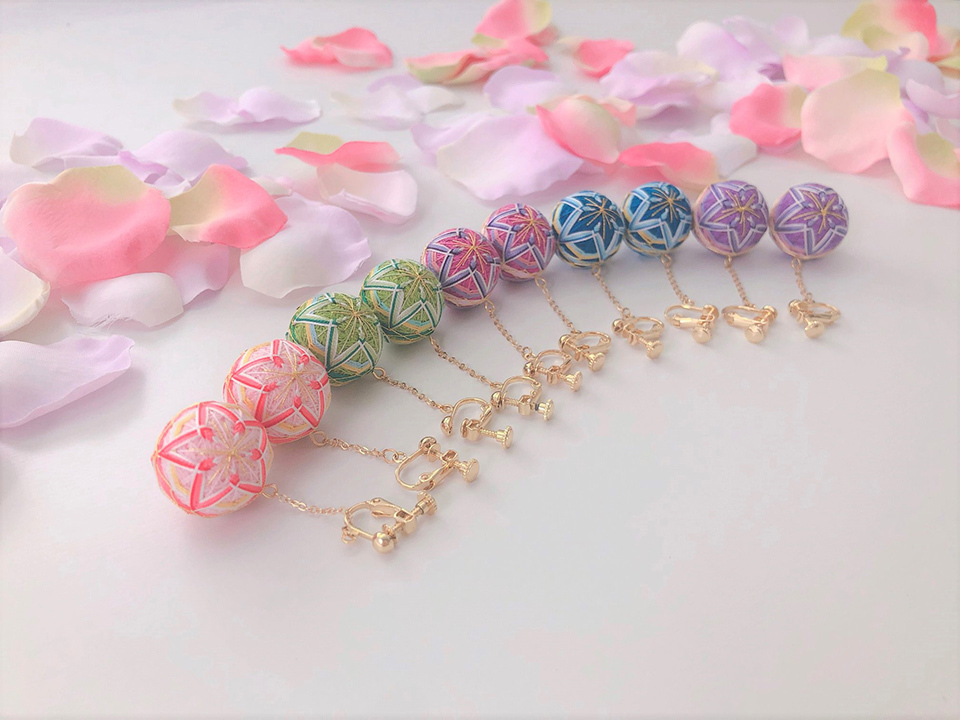
These embroidered-ball earrings are the fruit of a cross-border collaboration between workshops for disabled persons in Laos and Japan.
Ishihara began by visiting welfare facilities in Laos and calling on disabled people in their homes, offering daily life support. In 2017, she launched an organization in Japan called Support for Women’s Happiness, and opened a workshop in the Laotian capital of Vientiane with the collaboration of local participants. The workshop provides employment for women with disabilities so that they can work toward greater self-reliance. During a home visit, a woman with disabilities told Ishihara, “I want you to make a workplace where disabled people and poor women can work—where we can be assured of a minimum wage.” Those words motivated her to begin the project.
The name of the workshop is XonPhao Disabled People Working Group. Xonphao means “people or ethnic group” in the Laotian language, and the workshop also accepts disabled men, including some of the women’s brothers and husbands. About 30 people work there today, many of them in their 20s.
The work at XonPhao centers on the manufacture of handicraft products. The workshop develops gift items that draw on traditional Laotian weaving techniques, and it also collaborates across borders by co-producing items with Japanese workshops. One product that has proved to be popular is an embroidered ball that is first sewn at the XonPhao workshop, then sent to another workshop for disabled people in Gotemba City in Japan, where a metal clasp is attached to the ball so that it can be worn as an item of jewelry.
Ishihara recalls that, in the beginning, no profit was made in certain months, and how concerned she was about the difficulties in teaching the workers the intricacies of these crafts. She was encouraged, however, by the strong determination of the workers themselves to turn their lives around. Those women had been dependent on their families to support them, but the workshop now made it possible for them to earn money on their own and send some of it home. The joy of helping others was enormous, allowing them to feel a burgeoning sense of responsibility and motivation. In the future, the women may well become fully self-reliant and capable of leaving the workshop altogether.
“I look forward to that more than anything,” says Ishihara. “I’ll miss them, but leaving means that they have made true progress.”
The self-reliance and self-respect instilled in people at XonPhao will reach beyond the workshop and pave the way for other disabled adults and children to help them realize their full potential and live happy lives.
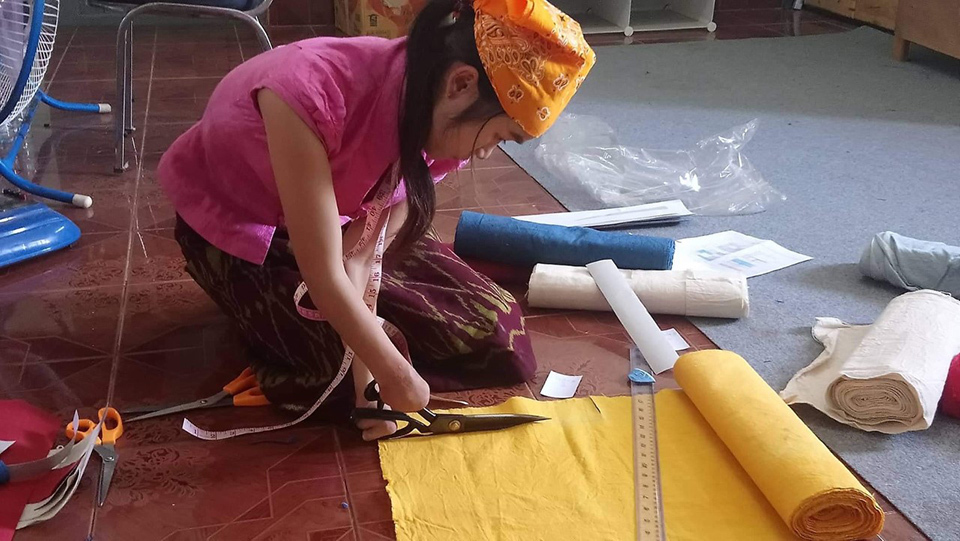
The woman who is cutting fabric lost her fingers when she was quite young, but practice has enabled her to use both scissors and sewing machines with great dexterity.
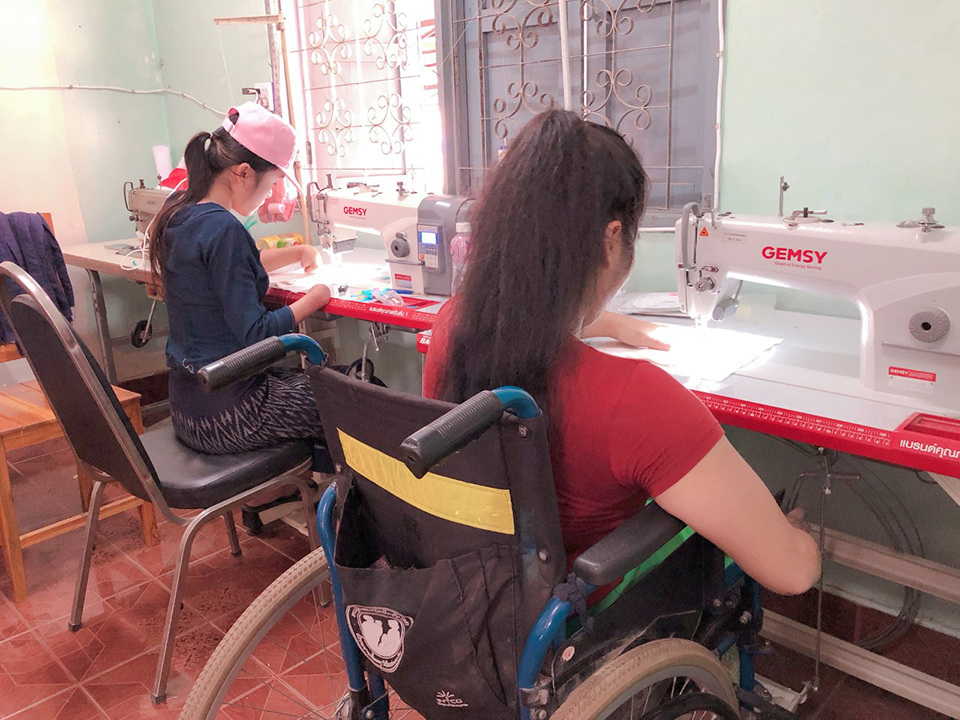
Women working at sewing machines.
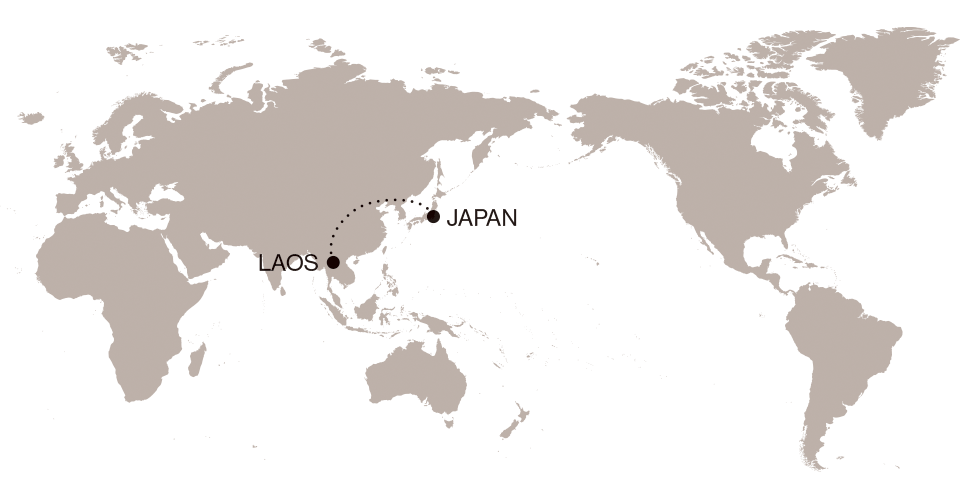
ISHIHARA YURINA
She leads the nonprofit organization Support for Woman’s Happiness. After helping to build schools in Nepal and Laos, she co-established XonPhao, a workshop in Laos that employs disabled women—a group of people previously kept away from the eyes of society. Workshop members produce handicraft items, and Ishihara hopes to see the women gain confidence and happiness at XonPhao and win a way to self-reliance.





























